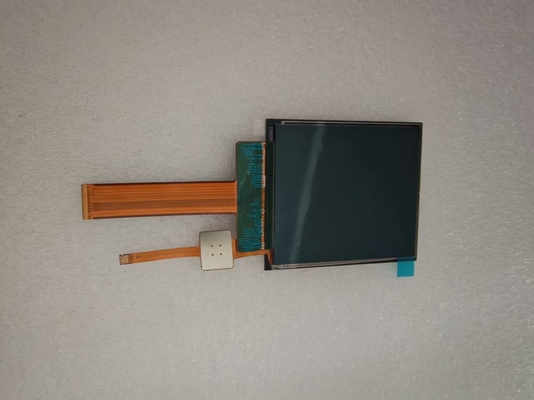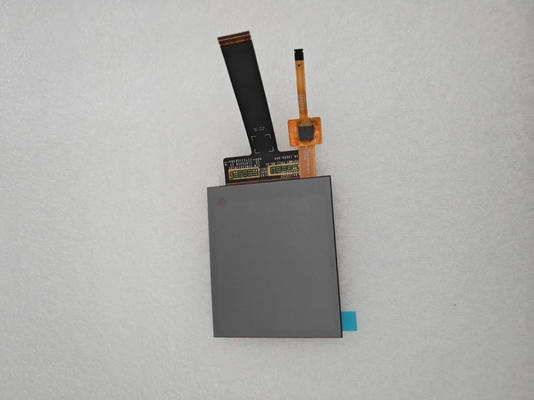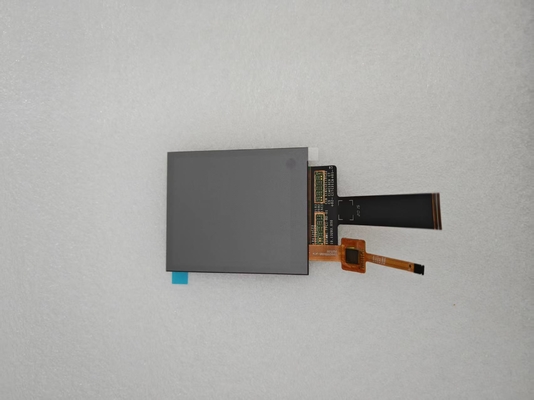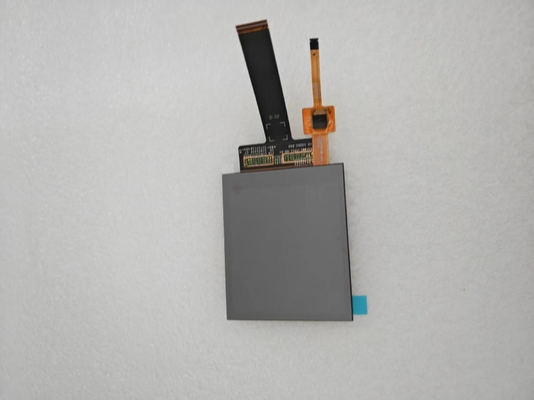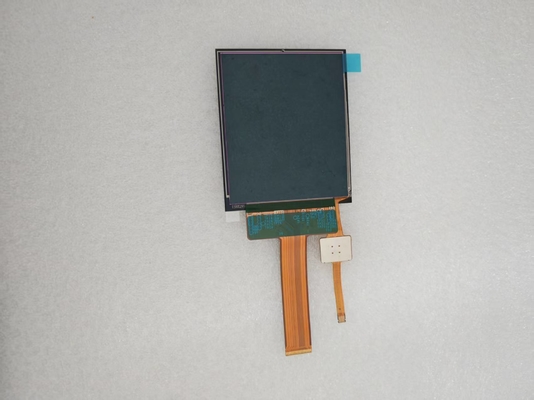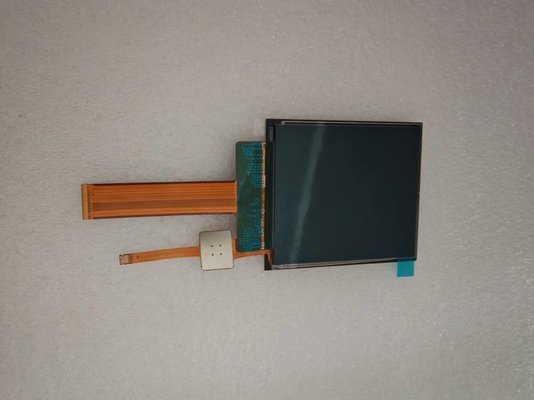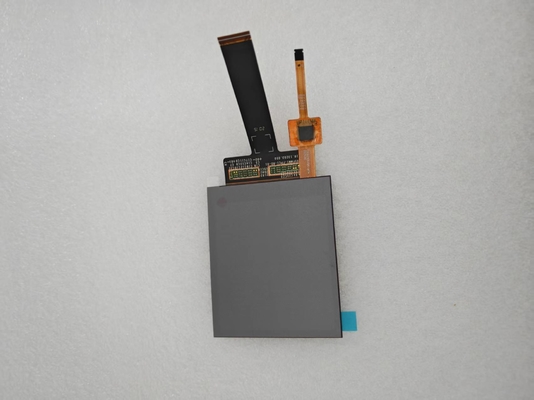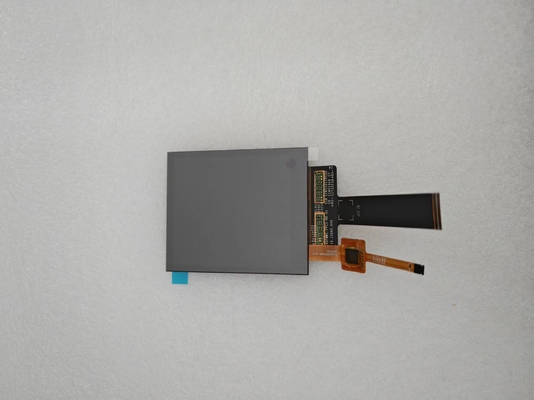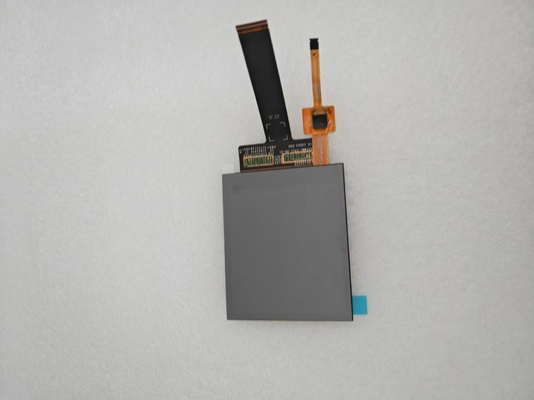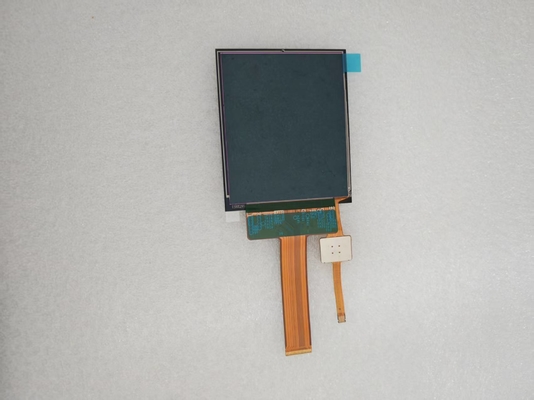All Products
-
LCD TFT Display
-
Touch Screen TFT Display
-
Round TFT Display
-
TFT Color Display
-
AMOLED Display Module
-
Micro OLED Display
-
Bar Type TFT
-
Square TFT Display
-
High Brightness LCD Display
-
COB LCD Display
-
Sunlight Readable TFT
-
UART TFT Display
-
LCD Display Module
-
PMOLED Display
-
Epaper Display
-
LED Digital Display
-
Capacitive Touch Panel
2.95 Inch High Resolution AMOLED Display Module with 1080x1200 Dots and 255c/d Brightness
| Place of Origin | China |
|---|---|
| Brand Name | HuaXin |
| Certification | ISO14001/ ISO9001/IATF16949 |
| Model Number | ESHX2950398-A04 |
| Document | ESHX2950398-A04 20250212.pdf |
| Minimum Order Quantity | 500 |
| Price | $68 |
| Packaging Details | blister+foam box+bubble bag+inside carton+master carton |
| Delivery Time | 6weeks~8weeks |
| Payment Terms | T/T |
| Supply Ability | 50K per month |

Contact me for free samples and coupons.
Whatsapp:0086 18588475571
Wechat: 0086 18588475571
Skype: sales10@aixton.com
If you have any concern, we provide 24-hour online help.
xProduct Details
| Display Technology | CTP Amole Display | Name | Oled Panel |
|---|---|---|---|
| Size | 2.95" | Resolution | 1080 X 1200 |
| Brightness | 255c/d | Interface | MIPI |
| CTP Ic | GT967 | ||
| Highlight | 2.95 Inch amoled display module,High Resolution amoled display module,1080x1200 amoled display module |
||
Product Description
2.95 Inch High Resolution AMOLED Display With Touch Panel
1080x1200 Dots MIPI Interface, 255c/d Brightness
Product Description
2.95 inch high resolution AMOLED display with touch panel featuring 1080x1200 resolution dots, MIPI interface, and 255c/d brightness.
Product Parameter
| Part No: | ESHX2950398-A04 |
|---|---|
| Display Mode | 2.95 inch AMOLED display with CTP |
| Outline Size (mm) | 56.91 * 67.58 * 1.13 |
| AA Size (mm) | 50.11 * 55.68 |
| Display Dots | 1080 * 1200 |
| View Angle | ALL |
| Brightness | 255c/d |
| Interface | MIPI 4 lane |
| CTP IC | GT967 |
Product Picture
Drawing & Pin Definition
OLED Product Knowledge
OLED Advantages:
- Lighter and thinner than LCDs
- High contrast ratio
- High color saturation
- Lower power consumption
OLED Disadvantages:
- AMOLED is more expensive than LCD and TFT
- Lifetime is shorter than LCD and TFT
Company Information
Huaxin Advantage:
- Factory base located at inland city which has cost effective
- Most advanced new equipment which can keep quality stable
- Most processes using fully automatic equipment which has efficiency and stable quality
- Professional engineers and production leaders with 20+ years experience in LCD field
- Self design for customized product
Our Certificates:
- ISO14001
- ISO9001/IATF16949
- SGS of LCD module
Huaxin Technology (Enshi) Co., LTD
Hubei.Enshi
Date of foundation: 2009
High technology enterprise specializing in research, development, production and sales of LCD, LCM, TFT, backlight, OLED
Register capital: twenty million
Current staff: 500+
R&D accounts for 10%
QC accounts for 15%
Production Capacity
| Annual Production Capacity | 2021 (Current) | 2022 (Goal) | 2023 (Challenge) | 2024 (Challenge) | 2025 (Challenge) | Remark |
|---|---|---|---|---|---|---|
| LCD Production Capacity | 4.5 | 9 | 9 | 9 | 9 | Unit: thousands of logarithms/Day |
| LCM Production Capacity | 70 | 150 | 300 | 450 | 450 | Unit: Thousand piece/Day |
| Backlight Production Capacity | 100 | 200 | 300 | 500 | 500 | Unit: Thousand piece/Day |
| OLED Production Capacity | 10 | 20 | 30 | 40 | 50 | Unit: Thousand piece/Day |
Product Application
- Safety box & instrument
- Lock & smart home
- Transmitter & watch
- Watch & radio
- Collimator & navigator
AMOLED Display Characteristics
- Self-Emissive Pixels
- High Contrast Ratio
- Color Accuracy and Vibrancy
- Wide Viewing Angles
- Power Efficiency
- Thinness and Flexibility
- Fast Response Time
Power Efficiency Comparison
1. Power Consumption:
AMOLED displays consume power on a per-pixel basis, meaning that pixels displaying black or dark content consume very little power, while pixels displaying bright or white content consume more power. LCD and LED displays require a constant backlight that consumes power regardless of the displayed content.
2. Content Dependency:
AMOLED displays are more power-efficient for content with dark or black areas, as individual pixels can be turned off to save power. LCD and LED displays consume a relatively constant amount of power as the backlight remains active.
3. Brightness Control:
AMOLED displays can dynamically adjust pixel brightness for better efficiency in low-brightness scenarios. LCD and LED displays typically have fixed backlight brightness, resulting in higher power consumption.
4. Display Size:
AMOLED displays tend to be more power-efficient for smaller sizes as consumption scales with pixel count. Larger LCD/LED displays may require more power-hungry backlights, reducing efficiency compared to same-size AMOLED displays.
Recommended Products



